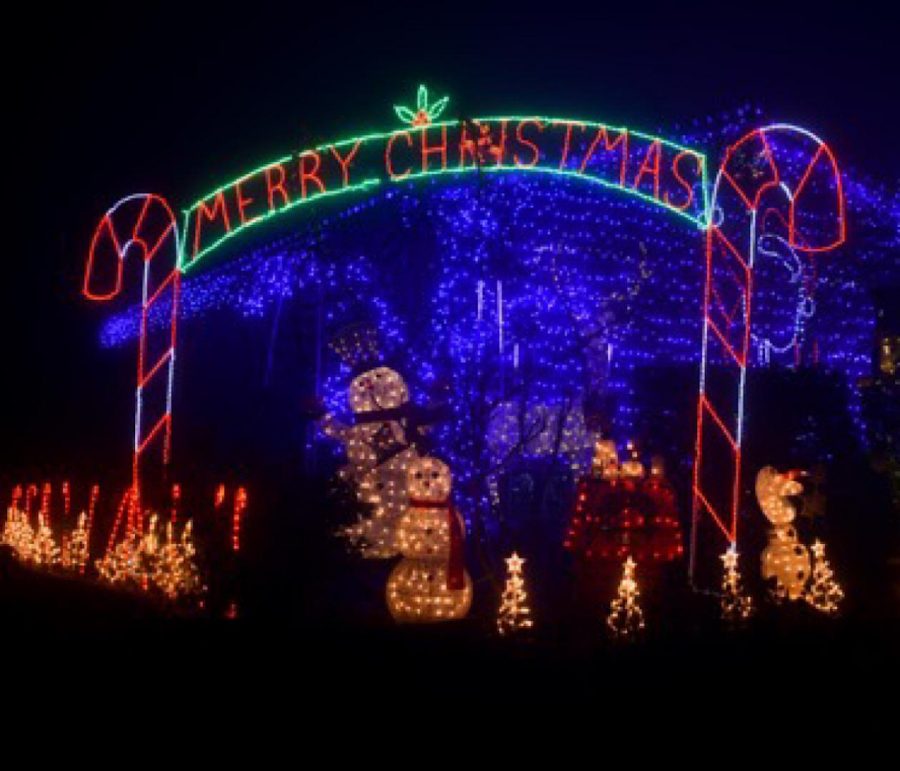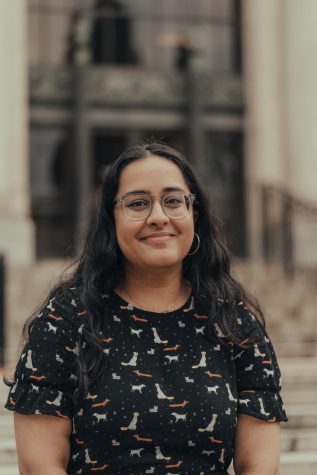OSU students looking forward to holidays amidst pandemic restrictions
December 24, 2020
While Christmas is just around the corner, many students at Oregon State University look forward to celebrating other, lesser-known holidays in upcoming months – though celebrations will look different with COVID-19 measures.
This month, for instance, there are two holidays Jewish people celebrate. Susannah Dickerson, director of Jewish Student Life at Oregon State University, explained that Hanukkah started the evening of Dec. 10 and ended eight days later on the evening of Dec. 18. It is often observed by the lighting of the Hanukkah – menorah – on each night of the holiday.
“It’s important to note that religiously, Hanukkah is a relatively minor holiday that does not come with the many rituals and restrictions associated with major holidays in Judaism, but in North America specifically it has taken on a cultural significance akin to Christmas and as a result some may engage in gift-giving as a part of this holiday as well,” Dickerson said via email.
The second holiday begins at sunrise on Dec. 25, through nightfall of the same day.
“This is a fast day referred to as Asara B’Tevet – the tenth of Tevet, a month in the Jewish calendar,” Dickerson said. “Those observing the fast day abstain from food and drink and in their daily prayer add the Selichot – Jewish penitential prayers – and other traditional supplements for the day.”
Another important December holiday is Kwanzaa, for which the Corvallis National Association for the Advancement of Colored People puts together a Kwanzaa celebration every year. This year, Kwanzaa starts on Dec. 26 and ends on Jan. 1.
Christopher Hughbanks, the vice president-elect for the Corvallis NAACP, said that usually, they would bring people together from their youth development program to discuss Kwanzaa principles while making crafts and designing table settings that people could take home.
According to Hughbanks, the holiday is a celebration of the harvest.
“It uses principles from Swahili and uses that as a way to acknowledge and give thanks and appreciate different aspects of the Black diaspora,” Hughbanks said.
There are seven different principles, and each has a different meaning. A few of the principles they would discuss include community building, creativity and financial independence.
“When you celebrate a principle, you celebrate what that means, or you do an activity, or you make things for others,” Hughbanks said. “So something that I have done, for example, when I celebrate Umoja, is I bring people together in my house. And we talk about what it means to be a community.”
The Kwanzaa table setting has candles, a mat, a unity cup and also symbols like corn, which represents the harvest.
Of course, not every important holiday takes place in the month of December. Aaren Kong is a fourth-year kinesiology student and the Cambodian Student Association’s secretary at OSU. He explained that Cambodians, as well as Thai and Laotian people, have their New Year’s celebration in April. Next year, it will fall between April 14 to16.
“I can only speak for what Cambodians do during this holiday, but before COVID-19 struck, my family would drive to a Cambodian Buddhist temple,” Kong said. “At the temple, we would give money to the monks, cook food for the monks and pray at an altar displaying multiple Buddha’s while the monks chant mantras and ‘bless’ the attendees. But since my family is trying to keep everyone safe this year, for Cambodian New Year’s, we will probably only be lighting incense and placing them in our home Buddhist altar.”
For Kong, the New Year celebrations give him the chance to meet more Cambodians of his age.
“I’m from an area where not many Cambodians besides my relatives live so going to the temple during New Year’s was my annual opportunity to meet other kids just like me,” Kong said. “Even though we only saw each other once a year, each time we saw each other it was like we’ve seen each other all year long.”
Traditionally, Kong said Cambodian New Year was used to signify the new harvest season. Farmers and other citizens would give thanks for what blessings they experienced throughout the year and ask for Buddha’s continued blessing on this year’s harvest.
Like Kwanzaa and Cambodian New Year’s connections to harvest, Hanukkah holds a lot of symbolism.
“Hanukkah commemorates the rededication of the temple in Jerusalem after the Maccabees took it back from the Seleucid Greeks in 164 BCE,” Dickerson said. “According to the Talmud, a commentary on the Torah, the Maccabees witnessed a miracle within the temple when they found there was only enough olive oil to keep the menorah’s candles burning for a single day. However, the menorah miraculously stayed lit for eight nights, leaving them enough time to get more oil to keep the lamp lit.”
This wondrous event is what inspired the sages to call for an eight-day festival, said Dickerson.
Meanwhile, Asara B’Tevet recounts the day in 588 BCE when the armies of the Babylonian emperor Nebuchadnezzar laid siege to Jerusalem.
“This eventually led to the destruction of the first temple on the ninth of Av in 586 BCE, which is another fasting holiday that takes place during the summer,” Dickerson said. “As noted previously, this has been used as a day of mourning and repentance.”
In the world of COVID-19, Dickerson noted that everyone is sadly restricted in the ways we can celebrate many of our important holidays.
“For Hanukkah in particular, Hillel [put] on Zoom celebrations that [allowed] students to participate without putting themselves at risk,” Dickerson said.
“[Kwanzaa] is something that comes out of a need to center Black thoughts, to center African knowledge,” Hughbanks said. “It was something that was created to ground our celebration in African principles and practices, which is really important because Africans were stolen and held in conditions of bondage. African heritage people in the Americas deserve a holiday that connects them to their homeland.”
It’s important to have holidays, said Hughbanks, to have initiatives that help us come together as a community to heal and to uplift our culture.
“My goal within the NAACP is to create a culture of respect and curiosity,” Hughbanks said. “For folks to know that Christmas isn’t the only thing being celebrated and that you should want to know and connect with communities who celebrate other holidays.”
He said people should not celebrate holidays in an appropriate way, but instead take initiative, learn things for themselves and connect with folks who celebrate those holidays.
This year, NAACP members can sign up for Kwanzaa-mailing to obtain craft materials, and members will post videos narrating their experiences celebrating Kwanzaa on their Facebook page.
To support less-known holidays, Kong suggests that OSU community members show their support by attending events that cultural clubs host.
“I think it is important for people to learn about different, and diverse kinds of holidays because it is something that can bring everyone together,” Kong said. “Some cultures and traditions tend to ‘gatekeep’ outsiders from entering which can create an unnecessary rift between people.”
Dickerson said she thinks it’s important for people to be aware of the many holidays people in their community celebrate because often those holidays come with customs and traditions that can be truly enriching to engage with.
Additionally, for many smaller religions, it’s just nice to see holidays recognized, to have options to decorate and celebrate, and to not feel forgotten.
“From my perspective, I think it’s great when the OSU community brings an intentionality in wanting to learn about holidays that may seem less-mainstream, but carry deep religious importance for the groups that celebrate them,” Dickerson said. “For Jewish people, there are a good chunk of holidays in fall and spring that forbid work[ing], so when the community is aware of those days and doesn’t schedule important events, then it’s just a little thing that makes all members of the community feel welcomed.”



















































































![Newspaper clipping from February 25, 1970 in the Daily Barometer showing an article written by Bob Allen, past Barometer Editor. This article was written to spotlight both the student body’s lack of participation with student government at the time in conjunction with their class representatives response. [It’s important to note ASOSU was not structured identically to today’s standards, likely having a president on behalf of each class work together as one entity as opposed to one president representing all classes.]](https://dailybaro.orangemedianetwork.com/wp-content/uploads/2025/03/Screenshot-2025-03-12-1.00.42-PM-e1741811160853.png)
























